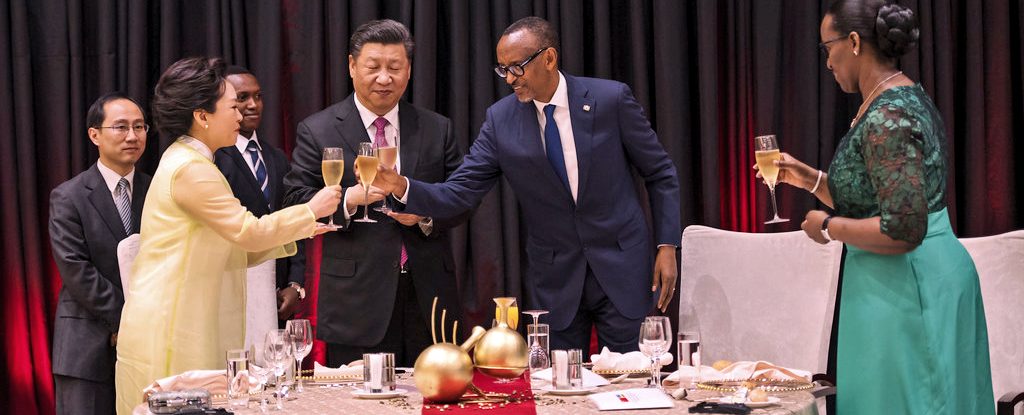China-Africa relations thrive on interpersonal ties of mutual dependence, obligations, and reciprocity that African elites tend to skew to their benefit at the expense of the public interest. Rwandan President Paul Kagame hosting Chinese President Xi Jinping. (Photo: paulkagame) Guānxì (关系) is a defining feature of how China cultivates its diplomatic partnerships. Guānxì is a system of beliefs in Chinese culture that shapes how reciprocity is built through personal ties and mutual obligations. An individual who benefits from another’s guānxì is obliged to return the favor to enable the relationship to continue and to ensure one’s goals are secure. This is called “win-win solutions” (liǎng quán qí měi; 两全其美) where both sides “get the best of both worlds.”
In political and business settings, guānxì ties can be heavily instrumentalized, emphasizing material gain, interests, power, and influence. Many Chinese political scientists note that the Communist Party of China is held together by complex factional ties based on proximity to top leaders, length of service, and familial, historical, or regional backgrounds. The strength of one’s informal social network is often more consequential than formal titles or positions.
Many African political settings thrive on similar dynamics and patron-client linkages. Institutions, laws, and regulations often play a secondary role in such situations. “The net effect of guānxì is that African elites reap financial rewards and entrench their patronage networks while Chinese firms benefit by increasing their political clout.” While guānxì should theoretically give African countries leverage in their Chinese engagements, African leaders tend to use this reciprocity to obligate their Chinese partners to invest in leaders’ personal projects. A study of the geography of Chinese foreign assistance in Africa found that Chinese-funded projects in 49 countries between 2000 and 2012 were substantially more likely to be allocated to the birth regions of African presidents.
The net effect of guānxì is that African elites reap financial rewards and entrench their patronage networks while Chinese firms benefit by increasing their political clout, which they use to further their interests. In short, it is a “win-win” arrangement—for the individuals involved. The Africanized Guānxì Context
The $3.6 billion Mombasa-Nairobi-Naivasha “Madaraka Express,” Kenya’s most expensive project since independence , is a case in point of how African leaders have been adept at leveraging guānxì for their own benefit. The Madaraka Express was the brainchild of a Kenyan entrepreneur , Jimmy Wanjigi, who had strong ties to China and senior Kenyan […]
